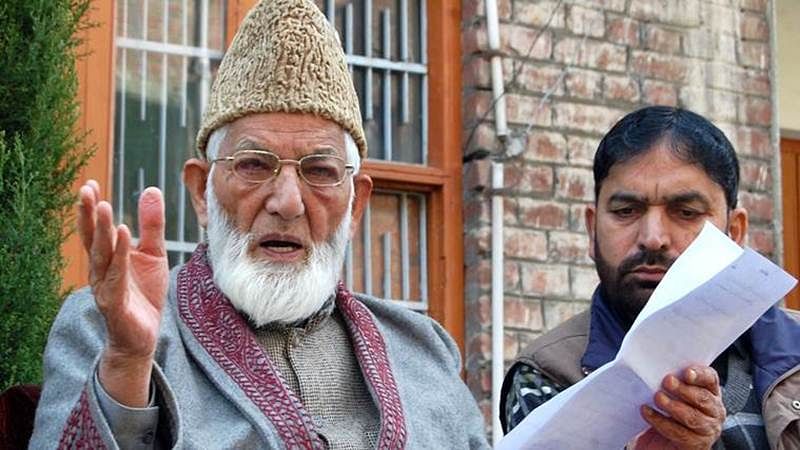Srinagar: The death of hardline senior separatist leader Syed Ali Shah Geelani has left a void in the separatist camp that might not be easy to bridge in near future.
Geelani had broken away from the Jamaat-e-Islami in 2008 when he formed his own political party called the Tehreek-e-Hurriyat.
Ashraf Sehrai was his deputy in the Tehreek-e-Hurriyat and most supporters of Geelani looked upon Sehrai as his logical successor.
Sehrai died of Covid infection while he was in prison May 5, 2021.
His death left the question of Geelani’s succession, as an icon of the separatist movement, wide open with apparently no successor in sight.
Geelani had senior colleagues and friends in the Jamaat, but after he broke away from them, the possibility of any senior leader of that organisation succeeding Geelani was over.
Interestingly, when he broke away from the Jamaat, Geelani had taken away hardliners like him to Tehreek-e-Hurriyat, but none among them except Sehrai could claim succession.
In 2003, Geelani split the All Party Hurriyat Conference into the hardline faction headed by him and the moderate faction headed by Mirwaiz Umer Farooq.
Geelani worked with other separatists like Yasin Malik of the JKLF, Mirwaiz Umer Farooq of Awami Action Committee, Professor Abdul Gani Bhat of the Muslim League, Molvi Abbas Ansari of J&K Ittihadul Muslimeen and Bilal Gani Lone of Peoples Conference during his association with All Party Hurriyat Conference.
Yet, there is no denying the fact that he continued to live in total mistrust of his Hurriyat colleagues and vice versa.
This had shut the option of anybody from the All Party Hurriyat Conference claiming to succeed him.
Among his two sons, Nayeem Geelani is a doctor and Naseem Geelani is an assistant professor in the local agricultural university.
Both of them have announced that they are not in the race to succeed their father in the separatist camp.
His son-in-law, Muhammad Altaf Shah, is presently lodged in the Tihar Jail after he was accused by the NIA of collecting funds to sponsor terrorism.
Despite having acted as Geelani’s spokesman for sometime, Altaf is not believed to have shoulders strong enough to step into the shoes of his father-in-law.
These developments rule out the possibility of anyone in the present day separatist camp to succeed Geelani as an icon of separatism in Kashmir.
Would his death further dampen the spirits of the separatists or would his death give another lease of life to the separatist sentiment in Kashmir?
Time alone holds a firm answer to this question and yet there is no doubt that the kind of hawkish approach adopted by Geelani cannot be matched by any of his rivals in the separatist camp.
IANS
